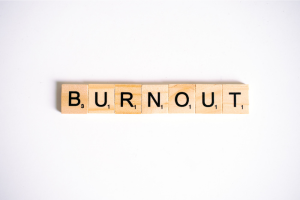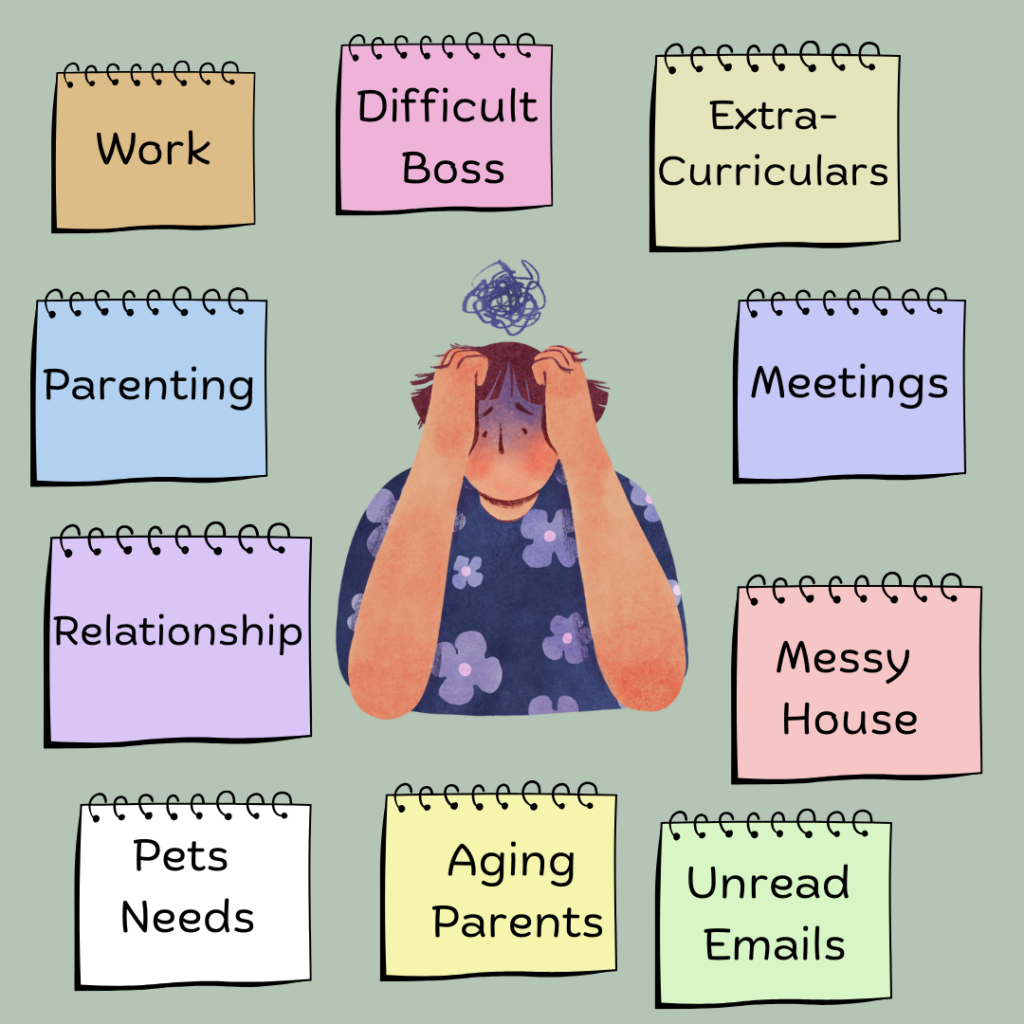
Burnout Meaning
Burnout. The term is thrown around a lot these days. Society tends to identify burnout as a catch all for overwhelm, fatigue, low motivation, irritability, etc. The World Health Organisation identified burnout as an official diagnosis. However, based on further inspection of its definition, burnout, officially, is considered an occupational disorder. Meaning the World Health Organisation classifies burnout as a disorder associated with a difficult work environment. If you believe you have occupational burnout, learn how you can help yourself here.
But…What About Life Burnout
Many people identify with the symptoms of burnout in ALL or most areas of their life, not just their jobs. So, what about life burnout? Are you feeling the symptoms of burnout everywhere? In your job, relationship, parenting, housework, errands, interpersonal connections, etc? Are you having trouble keeping up with life? You are not alone.

Burnout Symptoms
- Exhaustion
- Analysis paralysis
- Overwhelm
- Disorganised thoughts
- Feeling like you can’t keep up everywhere (home, school, kids, work, etc!)
- Irritability/Short fuse
- Frustration
- Impatience
- Struggling with sleep
- Caring less about things that you used to care about
Burnout feels like being mentally and physically depleted. Your energy bucket has too many holes poked through it. It feels impossible to actually fill it back up. Things that you used to put effort into and care about are perhaps getting done, but just. Completing basic things to our lowest potential can incite feelings of guilt and shame because we know we are capable of better, but can’t seem to access that level.

Burnout Recovery
Burnout can look different for everyone depending on life circumstances. However the overall result is the same: Mental and physical exhaustion. So what can we do about it?
Healing from Burnout is a Process
Firstly, it is important to recognise that you didn’t get to this point overnight. So expecting a quick fix is unrealistic. If you want to feel better and gain energy and enthusiasm for life again, then you need to be committed to a process.
What can you Eliminate or Reduce?
Secondly, can you identify where in your life there may be potential for change? Where can you make space? What is not absolutely necessary at this time? Some people may have more potential for possible change than others.
What can you Delegate?
This may be chores at home, work related tasks, or parent/caregiver duties. Is there even one thing you can hand off? Sometimes it is hard to ask for help, but usually people are willing to step up, especially if they know it will help you out.
Accept that Your Best Right Now is not your Best Ever.
This may be hard for the super high achievers. To cope with burnout we need to manage our expectations of ourselves. Simply put, you are not capable of your potential when you are burnt out. If you usually go above and beyond in work tasks or school assignments or household chores and are used to achieving a certain caliber of performance, not meeting this level can be a tough pill to swallow. Berating yourself or forcing yourself to “do better” is only going to incite a cycle of guilt, shame and stress and add to your burnout. We need to stop this cycle and to do so we need to recognise when we are being too hard on ourselves. Your best for right now is okay too. Remind yourself that it is just temporary and you will get back to your potential when you have taken the time to heal.
Breath Work
Taking small 5 minute breaks within your day to focus on your breathing can be transformative. Breath work is a way of focused breathing where your exhales are longer than your inhales. There are a number of breath work strategies. Choose which one works best for you.
How can breath work help me? Breath work can be transformative when used consistently. A few minutes of focused breathing can do the following:
- Relaxes the nervous system which calms the body’s fight/flight/freeze/fawn stress response. Slow exhales essentially tell your brain that you are “safe” which deactivates this stress response
- It reduces your heart rate.
- It decreases stress hormones in your body which can contribute to mood regulation, sleep disturbances, metabolism, blood sugar regulation, etc.
- It activates the parasympathetic nervous symptoms which stimulates the vagus nerve, which is part of the nervous system that is responsible for relaxation
- It improves your focus
Communicate to Family, Friends, Colleagues
Communicating how you are feeling can be impactful. Often we are all so busy living our own lives, we may not even notice how overwhelmed a friend or family member is. Identifying that you are struggling with this can increase awareness, empathy and understanding during this difficult time.
Take a Mental Health Day
Yup. Take a day. There is a lot of controversy here around taking a “sick day” for mental health. It’s important to remember that mental health and physical health are not separate. They are intrinsically connected. Our stress response due to burnout has a direct impact on our immunity and our ability to contract illness. The research is plentiful to support the fact that chronic stress impacts our body’s ability to fight inflammation which contributes to a host of physical maladies from the basic cold to chronic pain to autoimmune diseases. Taking a sick day (or two) can help you rest, refocus and rejuvenate and avoid the long term impact of chronic stress including debilitating physical symptoms.
